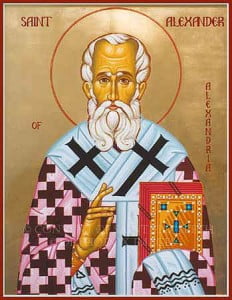Greek Name Days are an indispensable part of the Greek tradition. It is most likely that, when you find yourself in Greece, you will think that the same Greek names are used all the time and that everyone seems to celebrate their name on the same day.
Kostas, Nikos, Yannis, Anna, Eleni are definitely some of the most common names in Greece, and in some cases, one has to call seven or eight different people on one day to wish them for their name, if it is an important Greek name day like May 21st (nameday of Eleni, Kostas or Kostantinos) or January 7th (nameday of Giannis or Yiannis).
Celebrating the name day is not very common in other parts of the world, but you can still find some countries, such as Bulgaria, Finland, Latvia where the celebration of the name days is still important and meaningful.
Greek Name Days and Celebrations in Greece
 Name Days in Greece are celebrated even more than birthdays,opposite to all other countries. On someone’s name day, there is an open house held and a feast is laid on for everyone who wants to come. Neighbors and friends or relatives usually call and can visit the house, without waiting for an official invitation.
Name Days in Greece are celebrated even more than birthdays,opposite to all other countries. On someone’s name day, there is an open house held and a feast is laid on for everyone who wants to come. Neighbors and friends or relatives usually call and can visit the house, without waiting for an official invitation.
When visiting someone’s home, you are supposed to bring a small gift to the person whose nameday is, but although it sounds weird, less emphasis is given on the gifts of the name day than the ones of the birthday celebration.
Coming empty handed to a celebration is poor form, so if you decide to visit someone at the last moment, you can always buy flowers, sweets or wine, but never ever offer money: it is offensive.
Celebrating the name days is all about being in a good mood and share some great moments with friends and well-wishers. Foods and drinks are usually cooked in abundance.
Greek Name Days And Greek Orthodox culture
According to the Greek Orthodox Calendar, each day of the year is dedicated to the memory of a saint or martyr; usually more than one on the same day.
Each saint has his special feast day; on that day Greeks also celebrate their namedays, which is the feast day of the saint after which they are named.
For instance, on Christmas you should wish Hronia Polla to a man named Christos or a woman named Christina, on January the 1st, you should wish to Vassilis and Vassiliki, and so on.
Floating Name Days
 The vast majority of Greek names, both male and female, are celebrated on the same day every year; there are though a few that are the so called floating name days or movable days. These days are associated with Easter, therefore you should always check the year’s calendar to see about these specific days. The most common floating Greek name days are Easter (when Anastasios and Anastasia are celebrating), the day of Agios Georgios (St George) and more.
The vast majority of Greek names, both male and female, are celebrated on the same day every year; there are though a few that are the so called floating name days or movable days. These days are associated with Easter, therefore you should always check the year’s calendar to see about these specific days. The most common floating Greek name days are Easter (when Anastasios and Anastasia are celebrating), the day of Agios Georgios (St George) and more.
In some cases, some names have more than one name day. The name Maria, for instance, is one of them. Maria and Marios celebrate on August 15th or November 21st – it’s either on the day of Dormition, or the Presentation of Virgin Mary. Usually in this case, most people tend to choose when they want to celebrate their name day; however, local traditions and customs can also influence their choice, so you cannot rely on what you have read.
If you do not want to miss the name day of a Greek friend and you see in our pages that his name has two name days, just ask him! There is nothing wrong with that; on the contrary we should say.
Namedays of Ancient Greek Names
 Greek namedays today include more than just religious names; Greeks are also turning to their historical tradition, giving ancient Greek names to their children, or names that go back to the Greek culture. These ancient Greek names include names of mythical heroes or mythological personalities and of course famous Greek philosophers. Examples of Ancient Greek names are Odysseas (Ulysses), Alexandros, Socrates, Alexander, Ares or Leda.
Greek namedays today include more than just religious names; Greeks are also turning to their historical tradition, giving ancient Greek names to their children, or names that go back to the Greek culture. These ancient Greek names include names of mythical heroes or mythological personalities and of course famous Greek philosophers. Examples of Ancient Greek names are Odysseas (Ulysses), Alexandros, Socrates, Alexander, Ares or Leda.
Ancient Greek names have been popular in the past, especially during the beginning of the 20th century, but towards its end, and mostly during some harsh times, people turned to religious names, which explains why most Greeks have similar given names!
The Greek Orthodox Church recognizes this tendency and has included many ancient Greek names in the Orthodox Calendar; this means that people named after some historical or mythological figure can still have their nameday and celebrate it the Greek way.
However, some pagan names still do not have their name day; people named after these names can choose not to celebrate ever, or to celebrate on the say of All Saints (Agion Panton).

it helped!